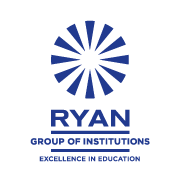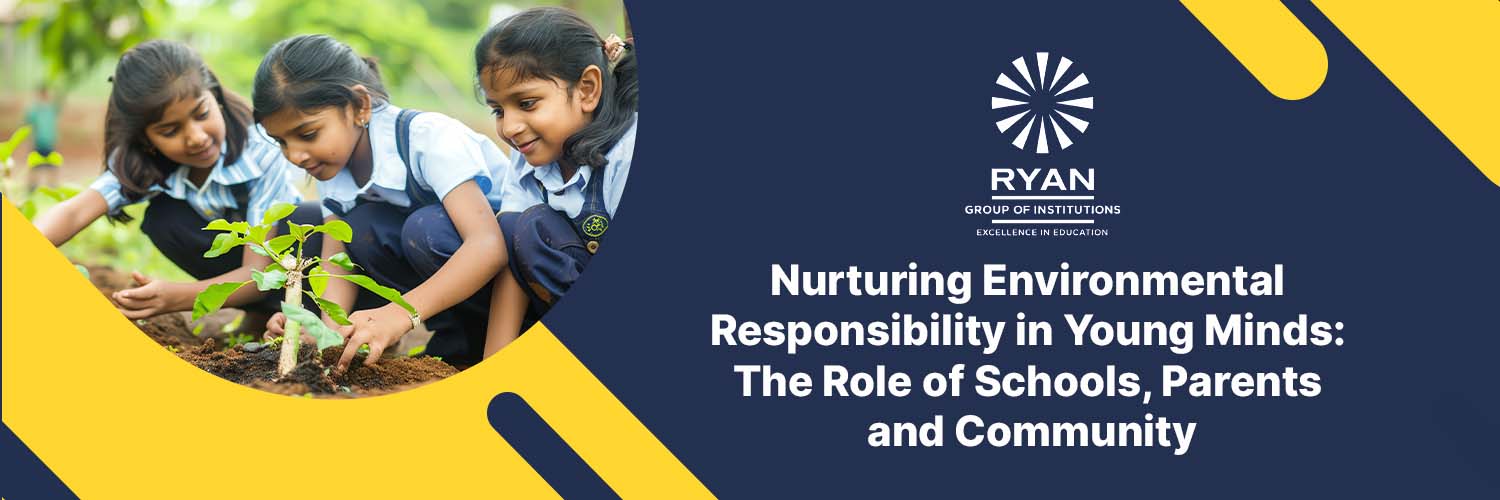Environmental challenges such as air and water pollution, increasing plastic waste, deterioration of water bodies, and climate change pose serious threats to people’s existence. The situation is grim and dangerous, particularly in India, the most populous country on earth.
In this context, it is our duty to nurture environmental responsibility in the young minds of our children. Schools and the community play a key role in shaping environmental awareness and respect in children.
This blog delves into the various ways schools, parents and the community can work towards instilling a strong sense of environmental responsibility in school-going children.
Why Environmental Responsibility Must Start Young
Children are naturally curious. They observe the world around them keenly and care for small things. They have a natural affinity towards plants, animals and—in general—nature. Thus, it is easy and efficient to amplify this natural trait rather than “training” them when they are adults.
The National Education Policy NEP 2020 emphasizes experiential and value-based learning. Teaching environmental awareness is an important value that should be experientially taught to children rather than just through facts and figures. This is an important step to build the foundations of developing responsible global citizens.
The Parents–School–Community Partnership
As we understand that building environmental awareness and eco-friendly temperament must start at a very young age, it is obvious that this responsibility is shared by parents, schools and the community—the three key pillars in the development of children. These three agencies must work hand-in-hand to ensure that the seeds of environmental responsibility are sown at a very early stage and nurtured throughout the various development stages of children.
Parents are the earliest contributors in this development. Even before a child starts school, parents must introduce concepts like enjoying nature, loving plants and animals, and also train them to throw waste in dustbins. Such actions will instill a sense of the environment around them.
As the toddlers grow, the parents can introduce ideas like not wasting water while brushing and washing, growing kitchen herbs and small plants in the garden, using cloth bags instead of plastic, etc., to nurture the responsibility.
Schools also must start environmental education at even primary stages of education. They can take children for nursery visits and teach about various plants, do campus clean-up activities (with proper safety measures), organize tree-planting events, and invite environmental experts to talk to children about various important concepts.
Resident Welfare Associations (RWAs) and Parent-Teacher Associations (PTAs) can collaborate to enable experiential environmental learning for children—where every park, garden, and street becomes a space for learning and caring for nature.
Ryan Group’s Initiatives to Nurture Environmental Responsibility
Ryan Group of Institutions take developing environmental awareness and responsibility very seriously. They organize various events in school and also in partnership with the community to introduce their students to experiential environmental education.
Tree-plantation Drives

In a recent initiative, Ryan International Academy, in partnership with Rotary Bangalore Orchids, organized a massive tree-plantation drive in its four campuses in Bengaluru— Sarjapur, Kanakapura Road, Magadi Road, and Horamavu.
In this “Each One Plant One” initiative, driven by the 12-point vision of Dr AF Pinto, Chairman of the Ryan Group of Institutions, emphasizes the theme “Our Land. Our Future. We are #GenerationRestoration”. It is aimed at teaching young children the importance of afforestation and environmental restoration in preventing climate change.
The massive plantation initiative was supported by a community partnership. Rotary Bangalore Orchids generously donated 1,200 saplings, which were planted by the students across the four Ryan International Academy campuses. Each student will take care of one sapling and nurture it with support from their teachers.
This initiative has won laurels from various community leaders. Mr. Neil Michael Joseph, a green leader, social entrepreneur and an eminent Rotarian, said,
“As a Rotarian, I care about environmental renewal. What Ryan is doing with Each One, Plant One is truly visionary–getting children involved in tree planting creates a long-term emotional and ethical connection to nature. I’m especially impressed with the idea of entrusting children with nurturing saplings–what a beautiful way to grow both a child and a tree together.”
Interactive Sessions on Environmental Conservation
Ryan International School, Malad ICSE and ISC, hosted an interactive environmental awareness session on 8th October 2025 with renowned environmentalist and lawyer, Advocate Afroz Shah, recipient of the United Nations’ prestigious “Champion of the Earth” award—the highest international environmental honour. In this session, Mr. Shah engaged in an impactful dialog with our students about environmental responsibility and sustainable practices.

The session highlighted the urgent need to address critical environmental challenges impacting beaches, water bodies, and forests and underscored the interconnectedness of all ecosystems. Mr. Shah encouraged students to take meaningful, practical action through school- and community-level initiatives focused on sustainability and plastic waste management. He also inspired students with a powerful message: “the environment is ours, and we belong to our environment.” The session concluded with renewed enthusiasm as students pledged to lead cleanup drives and sustainability projects, marking a significant stride in the school’s ongoing mission to promote environmental stewardship.
Ryan International School is strongly committed to fostering environmental consciousness through such initiatives, partnerships, and student-led sustainability programs.
Building a Greener Future Together
Environmental responsibility is not a one-time lesson. It is a life-long commitment and a way of life. While parents sow the initial seeds of this awareness in young children, the schools—with support from the community—play a major role in nurturing this responsibility in young minds, and thus, empower them to grow into responsible global citizens of tomorrow.




